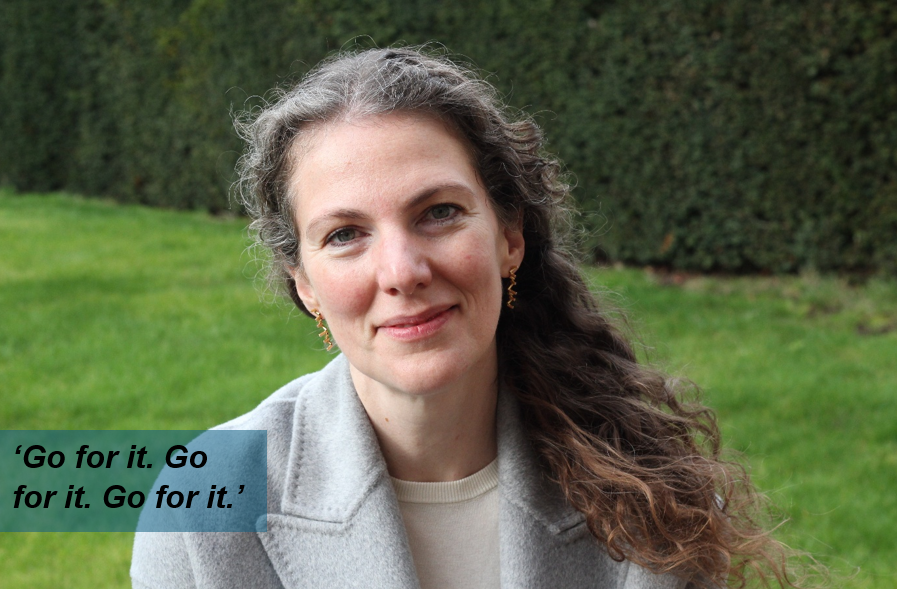An interview with Dr Ioanna Mela
Photo credit: Dr Sara Pensa
Dr Ioanna Mela is an Assistant Professor and Royal Society University Research Fellow within the Department of Pharmacology. Dr Mela is a Fellow of Emmanuel College and Director of Studies in Medicine. Following her undergraduate degree at the National Technical University of Athens, Dr Mela moved to the Department of Pharmacology at the University of Cambridge to pursue her PhD. She completed her post doctoral research at Chemical Engineering and Biotechnology, before moving back to Pharmacology to set up her independent research group.
Who are you and what do you work on?
Ioanna Mela, working on DNA nanotechnology for targeted drug delivery and correlative atomic force microscopy
What do you love about your job?
I absolutely love the variety and creative chaos that comes with a career in research and academia
How/why did your research lead you to Cambridge?
I did my undergrad in Chemical Engineering, in Athens, Greece. As part of a student placement during my 4th year, at Unilever Corporate Research in Colworth, I learnt how to use an atomic force microscope and absolutely loved the technique. When I finished my studies, a PhD position was available in the Department of Pharmacology, on the use of AFM to look at DNA structures alternative to the double helix, with Professor Robert Henderson. After that I worked as a research associate in the Departments of Pharmacology and Chemical Engineering & Biotechnology and 2 years ago, I established my own lab in Pharmacology.
Other than science what is most important for you in life?
I was very fortunate to be given opportunities in very unlikely situations and by very unlikely people. I am passionate about paying these opportunities forward so widening participation at every stage of people's academic journeys is something that is very important to me.
Do you have any advice to early-career women scientists?
Go for it. Go for it. Go for it. There is no reason to not go for it - look out for good mentors and good role models and don't be afraid to look for advice and help when you need it.
Why is science fun?
The unpredictability of it, the variety of the work, the joy of discovery. Working alongside and together with other scientists, develop ideas, test things out, fail, try again, change directions, revisit and re-build ideas all add to the fun!
What and when was the last experiment you did in the lab?
Last week I went to my old lab in CEB to do a correlative AFM experiment with one of my PhD students. It was for a project I am particularly excited about, and it was brilliant to have some hands-on input!
Have you had any embarrassing scientific moments?
On the second year of my PhD I was asked to purify a toxin for a collaborator. Not realising that the protein would be used to treat neurons, I purified it in the presence of detergent, which of course caused all the cells to promptly die...
How do you relax?
I dance. Being in a dance class forces you to forget about everything else, focus and concentrate – the physical demands of dancing make a great contrast to the mental demands of research.

